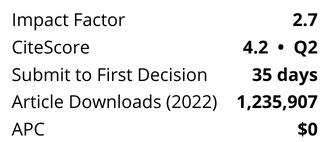Abstract
In this paper, flow behavior for activated sludge and thermal treated sludge at different process temperature and various solids content were analyzed. Results show viscosity of activated sludge and thermal treated sludge both decreased with increasing temperature, while temperature dependence of viscosity for both types of sludge were not same at the whole study range. The relationship between viscosity and temperature could be expressed by Arrhenius equation for activated sludge, and it was interesting that this law was only suitable when certain solid content (80 g/L) for thermal treated sludge. Moreover, the logistic model was certified to be accurate in describing the functionality for thermal treated sludge. As solid content was at range of 80–100 g/L, active energy of viscosity for both kinds of sludge were similar, indicating that physicochemical properties' change of sludge after thermal hydrolysis had little effect on viscosity sensibility. Arrhenius law was also suitable for describing the relationship between storage modulus and process temperature for activated sludge. However, for thermal treated sludge, Arrhenius law was invalid. Yield stress for activated sludge was prominent, while it could be ignored for thermal treated sludge.




%20cropped.png?versionId=5945)